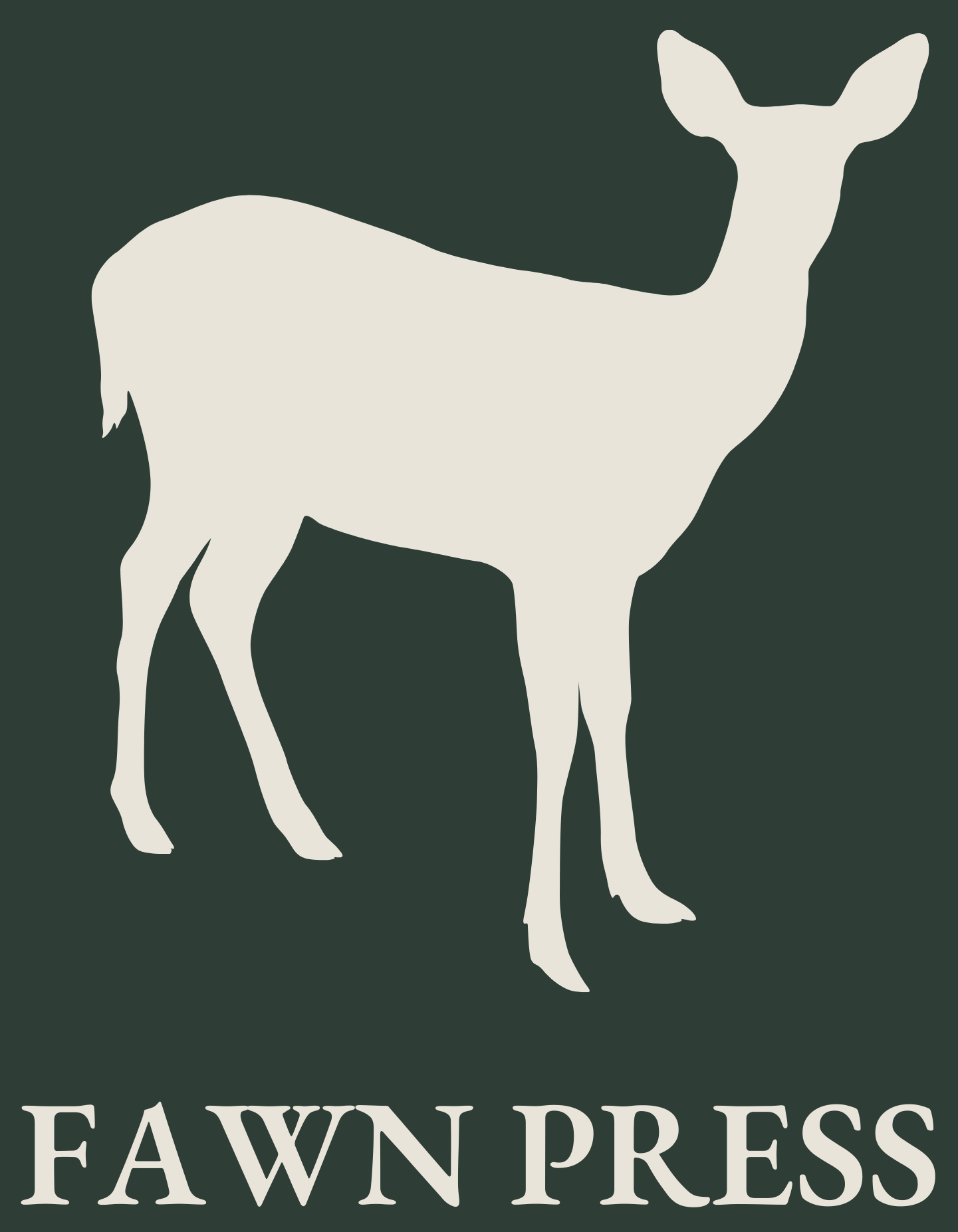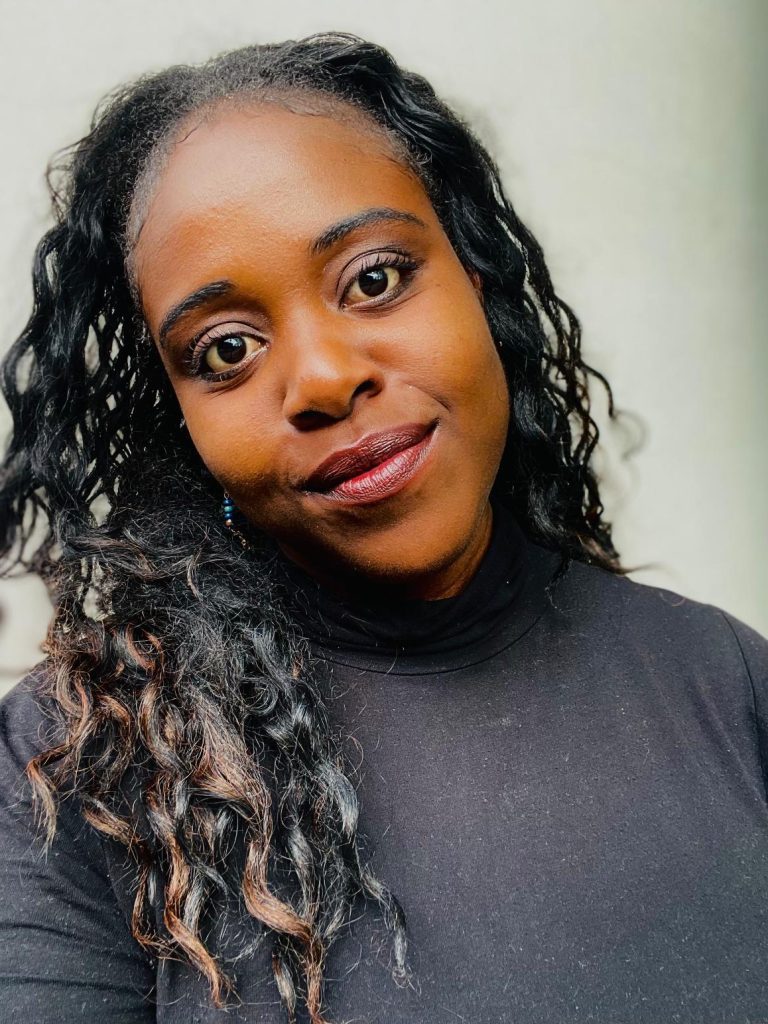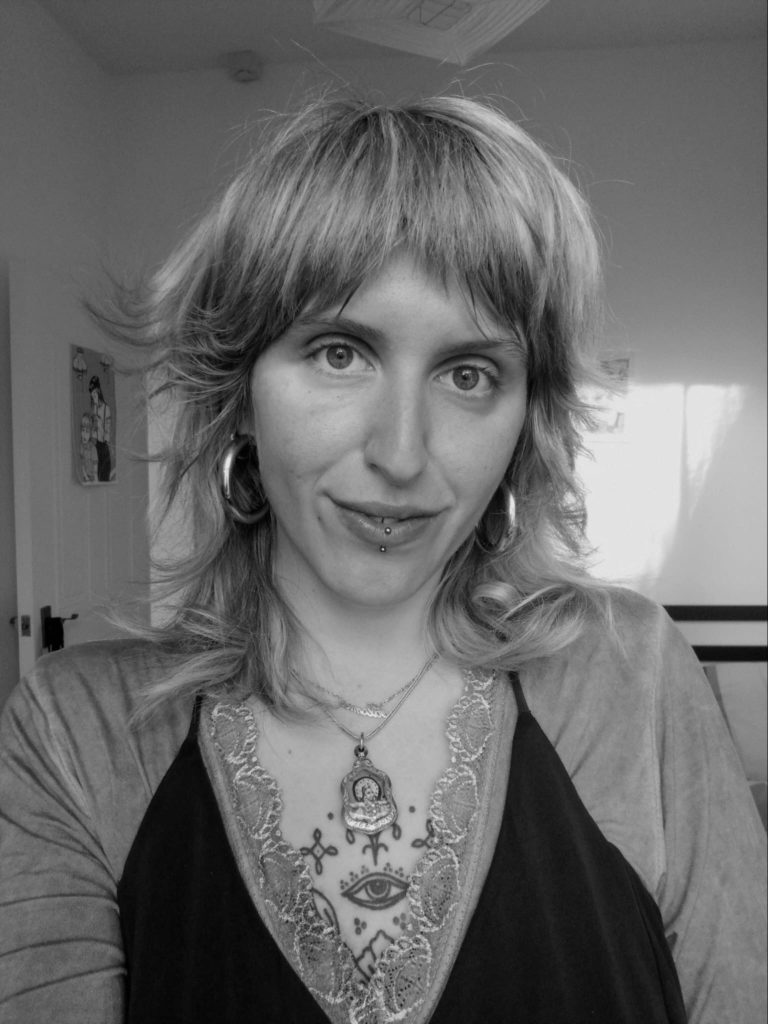Meet our Fawn Press submissions team, Lexia Tomlison and Salomée Lou, who will be playing a crucial role in combining efforts with Scarlett Ward to select and edit the poems that will be selected for the development programme, publication, and for publication in the thicket magazine.
•Lexia Tomlison, poet and editor at Fawn Press, shared with us about herself, her relationship to poetry and some insightful comments on what she’ll be looking out for in people’s work.
What I will be looking for in the submissions
“I’ll be looking for vulnerability, resilience, a testimony to a journey, a real poetic story with gravity.“
Lexia Tomlinson, a globally recognised poet, actor, and academic facilitator, hails from Jamaica and currently resides in Birmingham, UK. Her international background and the diverse influences of her upbringing are evident in her work, which delves into the socio-political ethos: “The social is political, and the political is social, but everything is personal.”
At the heart of it, Lexia cares about stories and people, anything that explores the human condition imaginatively; music, poetry, film, and activism are her main interests.Lexia’s first full compilation of poetry, Sankofa, a pivotal coming-of-age collection, is now available with Verve Poetry Press.
Q & A
What sort of poetry are you hoping to read in this submission window?
I am open to all types of poetry; I genuinely like a good surprise, like when you go thrifting and find a beautiful jumper you didn’t know you needed but now you can’t live without it. I’m looking for poems with heart and vulnerability that have a fierce resilience. A poem that has something to say, it’s not just being pretty and hitting form. The form is chosen to compliment what you are trying to say.
What makes a great poem title, and ending?
What makes a great title is something that catches the eye or mind; it compels me to want to read it. It fits the poem or intentionally juxtaposes with the topic of the poem. A great ending leaves me a little still, like wow my Fawn response is activated, I can’t move, I’m so blown away. I’m like, what, how did you tie this all together so perfectly!
Who are you reading right now?
At the time of this Q & A the collection I’m currently reading is by Tarriona Tank Ball, the collection is called Vulnerable AF.
Who is your favourite poet?
My favourite poet is William Blake, centuries apart, yet there is just something about his life and work that resonates deeply in my soul. He shows me that the kind of poetry I want to put out into the world can have a long lasting legacy.
Tell us about Sankofa (Verve, 2023)
Sankofa is my crucial coming-of-age poetry collection, which was finally released in November 2023. It was accepted in 2020, but the pandemic and life caused many delays. One of the questions earlier was about a good title, and I would say a good title can tie everything together and give you a place to work from. Sankofa, the word and symbol means a lot to me: When you are lost, sometimes the only option is to go back to the beginning to retrieve what is missing.This collection is divided into three daring chapters: Past, Present, and Future. Spanning over a decade and peering into the future, Sankofa takes readers through an interdimensional intersection.
There literally is something for everyone in here: from punchy rhyming poetry to playful page poems that experiment with blank space. The topics of the poems are just as diverse, including the old poetic favourites of romance and heartbreak. There is also the factor of faith or lack-of, the battle of the body and the protection of the planet.My wish is that each reader can retrieve a spark of personal power in their own belly.
You can follow Lexia’s work on instagram here
Salomée Lou, poet and submission reader for The Thicket Magazine.
What I will be looking for in the submissions
“I’ll be looking for your voice. I want to hear your voice and your truth, even if it’s ugly. I’ll be looking for authenticity and rawness.”
Salomée is a bilingual poetess, queer witch and a feminist bookseller based in Brighton. She originally comes from Provence in France. After working with diverse arts collectives in the UK such as Verse Matters and SheFest, she created her own spoken word collective in Berlin, Political Agender. Salomée’s writing can be found in Heroica Magazine, Aghh! Zine, and Now Then.
Her favourite themes to endlessly explore are emotions lost in translation, transmission, words as spells and anything related to sisterhood. When she doesn’t write, you’ll find her curled up somewhere with a cuppa, reading.
Q & A
What sort of poetry are you hoping to read in this submission window?
I am always looking out for great details, visceral images, showing not telling.
What makes a great poem title, and ending?
I personally love cyclical poems. I love when the first line becomes the last line but upon reading or hearing the last line, the meaning has changed from the first time you heard it because you heard a whole person’s perspective on a particular experience. It does something to my brain chemistry. I also love when poets take a strong line from their poem and take it as the title, similar to a song.
Who are you reading right now?
I am currently reading ‘I cannot be good until you say it’ by Sanah Ahsan, it is a fantastic debut collection exploring queerness, religion, racism. Every word is intentional and Sanah also plays with different poetic forms. It’s a delight to read.
Who is your favourite poet?
What a difficult question! Do we have to pick one? The poem Home by Warsan Shire will always rip my heart open. I bloody love Salena Godden and Hollie McNish. Sorry I can’t stick to one!
You can follow Salomée’s work on instagram here
A final work from Founder and Editor In Chief, Scarlett Ward.
“I will be looking for unique voices that are true to the poet. I love poems that push the boundaries of what poetry can do, and be. I enjoy it when a poet uses concrete, and is able to tell me all about the magical abstract emotions in a physical tangible object. (Elaine Beckett’s boiling of an egg in the poem ‘Thursday’ illustrates this technique perfectly.) We will be prioritising poets from marginalised voices, and I hope that Fawn Press offers a safe and welcoming home for people to feel empowered to publish their work. Thank you for trusting us.”
Find out about submissions guidelines here. Submission window is open 20th May 2024 and closes 14th June 2024.



